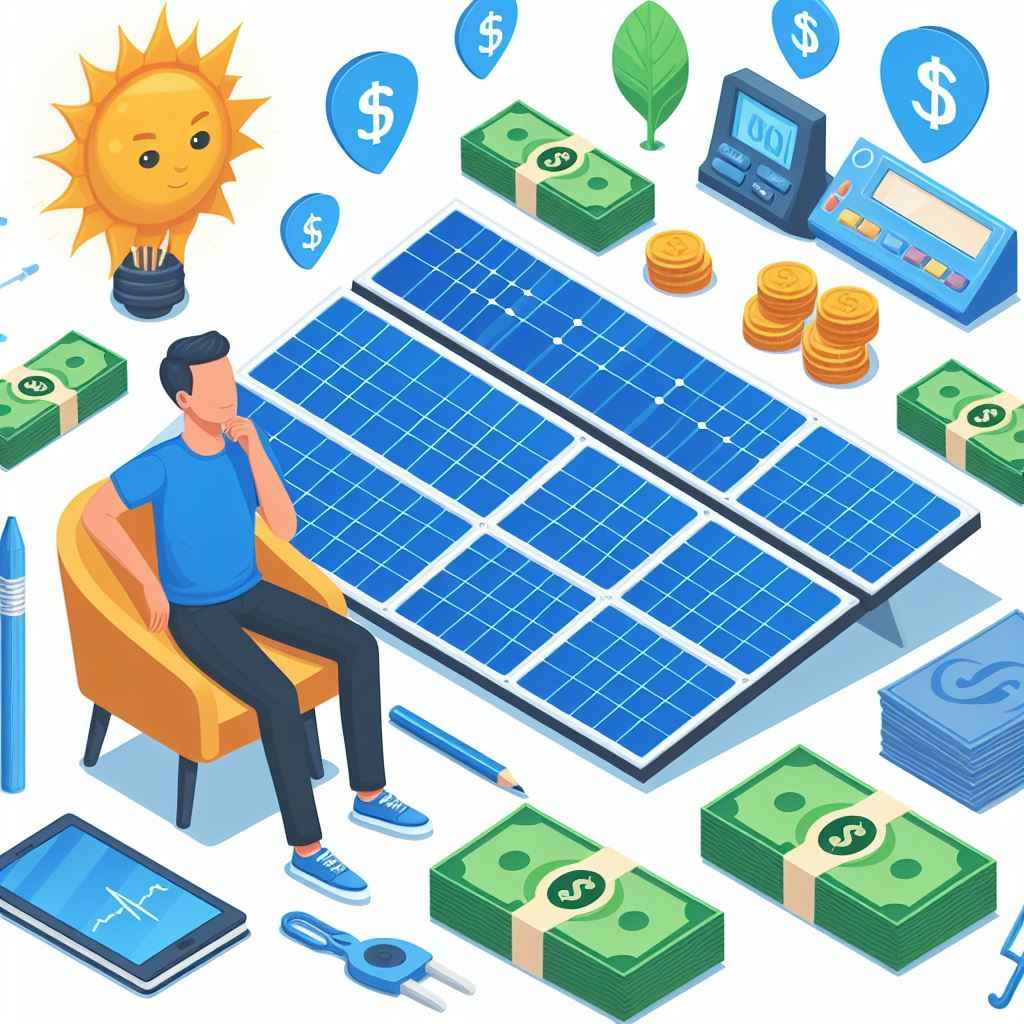Overview of B2B Solar Financing
Business-to-business (B2B) solar financing has become a pivotal element of corporate sustainability strategies. With rising energy costs and increasing environmental awareness, companies are looking to invest in solar technology not only to reduce their energy expenses but also to boost their corporate responsibility profiles. This section explores the basic framework of solar financing within the B2B sector, emphasizing the critical need for thorough evaluation processes when choosing a solar installer.

Evaluating Solar Installer Credentials
The credibility of a solar installer is paramount in the B2B context. Businesses must prioritize installers who hold reputable certifications and possess extensive experience in implementing solar solutions in a corporate setting. This part of the article will discuss the key certifications to look for, the importance of industry recognition, and the value of a proven track record in large-scale solar implementations.

Understanding Different Financing Options
Solar financing is not one-size-fits-all. Companies can choose from various financing models like solar leases, loans, and power purchase agreements (PPAs). Each option offers distinct advantages and implications for cash flow and balance sheets. This section will compare these options in detail, providing business owners with the information needed to decide which financing solution best suits their operational and financial objectives.

The Role of Custom Solar Solutions in B2B
Customization in solar solutions can significantly impact the financial viability and effectiveness of a solar project. Tailored solutions ensure that the solar array is optimized for the specific energy needs and physical constraints of the business premises. Discussions will focus on how bespoke solar installations can lead to better returns on investment and enhanced satisfaction.

Assessing Technical Expertise
It’s crucial for a solar installer to stay abreast of the latest technological advancements in solar panels and related components. This expertise directly influences the efficiency and longevity of the installed solar systems. This segment will outline what technical knowledge potential installers should demonstrate and why it matters for your business.
Importance of Customer Support
Long-term customer support is a critical factor in the B2B solar market. The article will highlight how dependable support not only ensures smooth operation and maintenance of the solar systems but also strengthens the business relationship between the installer and the client company.

The Role of Custom Solar Solutions in B2B
Custom solar solutions are crucial for optimizing the benefits of solar installations. A proficient installer will conduct a detailed analysis of the company’s premises, energy needs, and financial objectives to design a system that maximizes return on investment. Custom solutions ensure that the solar array is not only tailored to the specific requirements of the business but also optimizes energy production and financial returns.
Assessing Technical Expertise
The effectiveness of a solar installation largely depends on the technical expertise of the installer. Companies should seek installers who are well-versed in the latest solar technologies and who can demonstrate a history of efficient installations. This expertise ensures that the systems installed are of high quality, with optimal energy output and minimal maintenance needs over time.
Importance of Customer Support
Effective customer support is essential in the B2B solar industry. A solar installer that provides robust post-installation support ensures that any issues are quickly addressed, thereby minimizing downtime and maximizing system performance. Long-term service agreements and responsive customer service are indicators of a reliable installer committed to their client’s ongoing satisfaction.

Solar Technology and Equipment Quality
The quality of solar technology used can greatly affect the overall success of the solar project. This section will discuss how businesses can assess the quality and durability of solar products, what standards to look for, and why high-quality materials are crucial for maximizing the investment in solar technology.
Site Evaluation and Project Planning
A thorough site evaluation is crucial before undertaking a solar project. This evaluation should consider factors such as the site’s geography, climate, and the architectural design of buildings to determine the most effective placement and configuration of solar panels. Detailed project planning, including timeline estimation and cost analysis, should also be conducted to ensure smooth execution and to align with the business’s operational schedules.
Navigating Government Incentives and Rebates
Understanding and leveraging government incentives can significantly impact the financial viability of solar projects. Incentives such as tax credits, rebates, and grants can reduce the overall cost of solar installations. A knowledgeable installer will guide businesses through the available incentives and help integrate these benefits into the project’s financing structure.
Risk Management in Solar Installations
Identifying and mitigating potential risks associated with solar installations is another vital consideration. This includes assessing environmental risks, system reliability, and financial risks. An experienced installer will be able to identify potential challenges and propose solutions to mitigate these risks, ensuring the longevity and effectiveness of the solar installation.
Conclusion: Making an Informed Decision
Choosing the right solar installer is crucial for businesses looking to invest in solar technology. By carefully considering the installer’s credentials, the available financing options, their technical expertise, and the quality of proposed solutions, businesses can ensure a successful solar project that not only meets their energy needs but also aligns with their financial and sustainability goals.
By leveraging the insights and guidelines provided, businesses can make informed decisions that will lead to successful solar installations and long-term benefits.












Good